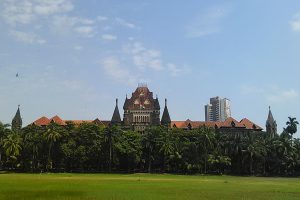Bombay High Court: N.J. Jamdar, J., while addressing a revision application with regard to maintenance under Section 125 of Code of Criminal Procedure, 1973 held that,
Statutory right of wife of maintenance cannot be permitted to be bartered away or infringed by setting up an agreement not to claim maintenance.
Wife cannot be denied maintenance on the ground of having a source of income.
Family Court’s Judgment was challenged in the present revision application whereby, Order for payment of Rs 15,000 per month to wife under Section 125 of Code of Criminal Procedure, 1973, was passed.
Applicant claimed that since inception of marital life applicant faced extreme cruelty and was subjected to harassment.
Respondent after leaving the applicant to her parental home at Satara did not come to fetch back the applicant due to which police intervention was allowed, after which applicant started reside separately.
To avoid harassment from respondent, applicant signed the documents for presenting a petition for obtaining divorce by mutual consent, accordingly a decree of divorce was obtained. Despite the same, respondent continued to visit applicant’s apartment and had marital relations as well.
Respondent had not made ay provision for the maintenance and livelihood of the applicant and applicant also had no source of income.
Hence, applicant was constrained to prefer application for award of maintenance under Section 125 CrPC.
Family Court had held that
“Applicant being a wife, despite being a divorcee, within the meaning of Explanation (b) to Section 125(1) of the Code, the agreement to reside separately from the Respondent does not disentitle her from claiming maintenance.”
Bench while addressing the present application observed that,
“There is no material on record to indicate at any point of time till the filing of the instant Petition for award of maintenance the Applicant had ever raised any grievance about the decree of divorce having been obtained by fraud.”
Supreme Court in the case — Rohtash Singh v. Ramendri, (2000) 3 SCC 180, considered the question whether a wife against whom a decree of divorce has been passed on account of her deserting the husband can claim maintenance allowance under Section 125 of Code of Criminal Procedure?
To the above, Supreme Court held that,
woman after divorce becomes destitute. If she cannot maintain herself and remains unmarried, the man who was once her husband continues to be under a duty and obligation to provide maintenance to her.
Statutory right of wife of maintenance cannot be permitted to be bartered away or infringed by setting up an agreement not to claim maintenance. Such a clause in the agreement would be void under Section 23 of the Indian Contract Act, being opposed the public policy.
Further the Court observed that,
The decree of divorce by mutual consent was passed in the year 2007. The application for award of maintenance came to be preferred in the year 2016. The Applicant was indubitably running a business under the name and style of “Kalyani Beauty Parlor and Training Institute” when the decree of divorce was passed in the year 2007.
Time lag of almost 9 years in approaching the Court with a claim that the Applicant was unable to maintain herself assumes critical significance in this context.
Family Court was of the view that the claim of the Applicant that she had no source of income was reliable and trustworthy and though the Applicant had the necessary qualification and experience, there was nothing to show that the Applicant was running the business of beauty parlor, in praesenti.
In High Court’s opinion in the backdrop of the material on record, the claim of the Applicant that she had no source of income ought to have been accepted by the Judge, Family Court with a pinch of salt.
High Court observes that,
the fact that the wife carries on some business and earns some money is not the end of the matter. Neither the mere potential to earn nor the actual earning, howsoever meager it may be, is sufficient to deny the claim of maintenance.
Supreme Court in the case of Sunita Kachwa v. Anil Kachwa, III 2014 (DMC) 878 S.C., held that:
“In any event, merely because the wife was earning something, it would not be a ground to reject her claim for maintenance.”
Thus the Applicant is entitled to maintenance from the Respondent even if the Applicant still carries on the business of Kalyani Beauty Parlor and Training Centre and earns some income out of the said business.
In this era of inflationary economy, where the prices of commodities and services are increasing day by day, the income from the business of beauty parlor, which has an element of seasonality, may not be sufficient to support the livelihood of the Applicant.
Impugned order is required to be interfered with to the extent of the quantum of maintenance. The Revision Application, thus, deserves to be partly allowed to this extent.
Hence, Respondent-husband shall pay maintenance to the Applicant at the rate of Rs 12,000/- per month from the date of the Petition i.e. 17th June, 2016.[Sanjay Damodar Kale v. Kalyani Sanjay Kale, 2020 SCC OnLine Bom 694, decided on 26-05-2020]

